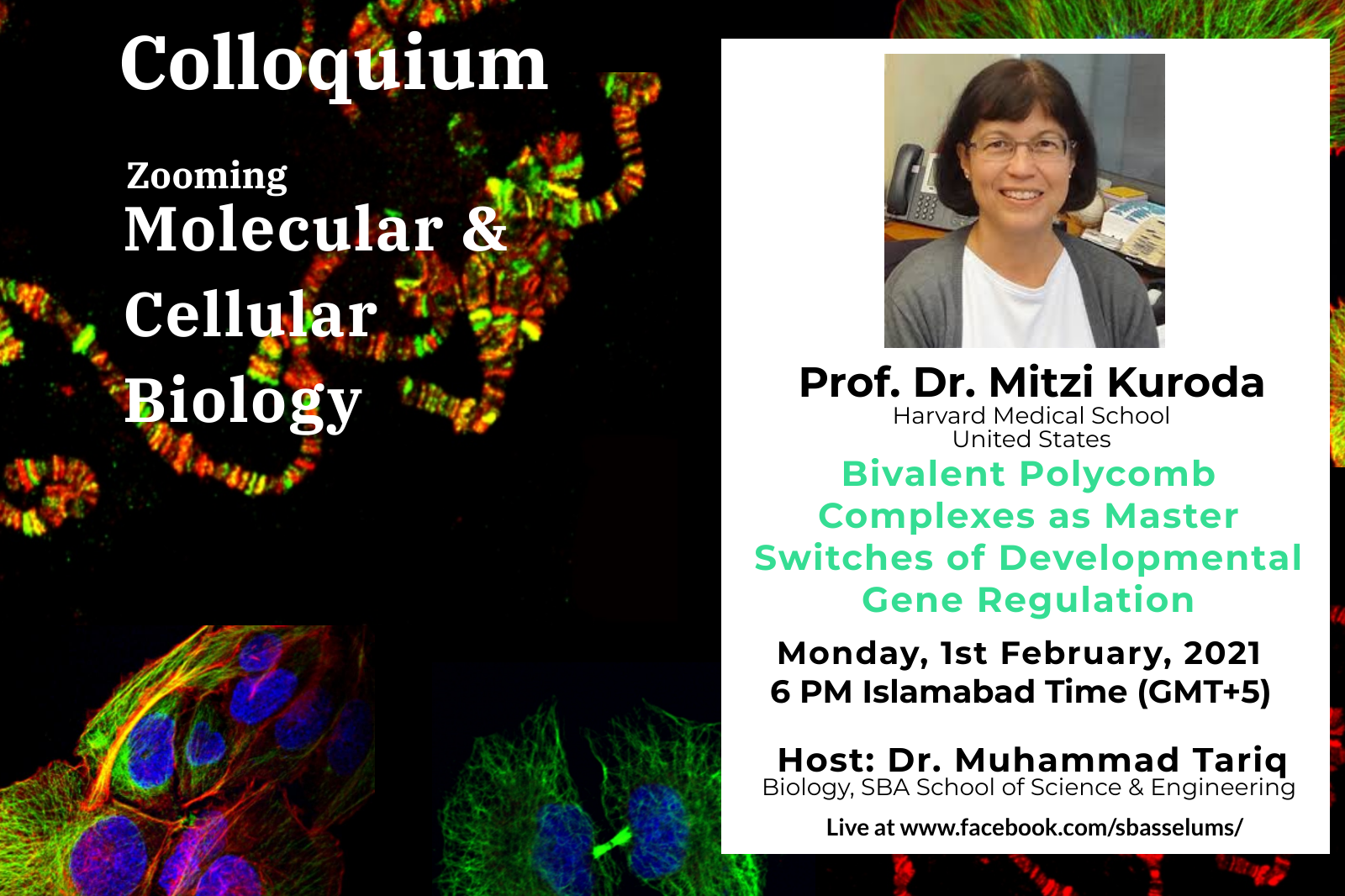
Bivalent Polycomb Complexes of Master Switches of Developmental Gene Regulation
Prof. Dr. Mitzi Kuroda from Harvard Medical School talks about the “Bivalent Polycomb Complexes of Master Switches of Developmental Gene Regulation” on Monday 1st February 2021 at 06:00 PM Pakistan time. This session takes place online via Zoom and will be webcasted via SBASSE’s Facebook page.
Kuroda laboratory is investigating role of chromatin bound protein complexes as well as related co-activators in embryonic stem cells and the aberrant properties of these proteins associated leukemia, with an ultimate goal to identify candidate factors and pathways for therapeutic intervention.
Mitzi Kuroda studied Biology at Tulane University in 1981. She did her PhD from Stanford University in 1987 followed by postdoc fellowship also from the Stanford in 1990. She joined Baylor College of Medicine as an Assistant Professor in 1990. Since 2003, she has been the Professor of Genetics and Medicine at the Harvard Medical School and Brigham & Women’s Hospital. Kuroda lab analyzes potentially bivalent complexes of PRC1 with MOZ and related co-activators in ES cells and the aberrant properties of oncogenic MOZ and MLL in leukemia, the ultimate goal of identifying candidate factors and pathways for therapeutic intervention. From 2000-2004, she has been an elected member of the Board of Directors of Genetics Society of America. She has also been a member of the NIH Molecular Genetics B (MGB) Study Section. Prof. Kuroda has been awarded the NIH merit award and is also an elected member of National Academy of Sciences.

